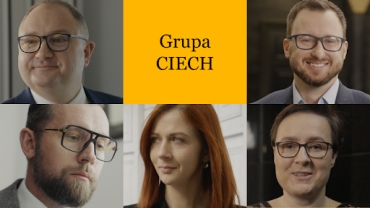
W przypadku kierowników projektów, których rola jest dynamiczna i wielowymiarowa, całkowite zastąpienie ich przez automatyzację wydaje się mało prawdopodobne. Zamiast tego, sztuczna inteligencja może znacząco zwiększyć efektywność w określonych obszarach, takich jak analiza danych czy monitorowanie zgodności. Chociaż AI doskonale radzi sobie z zadaniami takimi jak standardowe monitorowanie statusu projektu, raportowanie, aktualizacja danych, kontrola zgodności czy wykrywanie błędów, to czynnik ludzki pozostaje niezastąpiony w wielu kluczowych aspektach. Należą do nich m.in. aktywny udział w spotkaniach, zarządzanie komunikacją, rozwiązywanie konfliktów, motywowanie zespołów, tworzenie prezentacji, zarządzanie ryzykiem oraz współpraca z interesariuszami.
AI może wspierać działanie PMO, ale nie jest w stanie całkowicie zastąpić kierowników projektów. Ludzka empatia i umiejętność zarządzania relacjami interpersonalnymi pozostają niezastąpione w wielu aspektach pracy projektowej.
Od czasu opublikowania naszego pierwszego artykułu: “Czy automatyzacja zastąpi project managerów?” dokonał się znaczący postęp w rozwoju technologii AI oraz jej zastosowaniu w zarządzaniu projektami. Zmiany te jeszcze bardziej zwiększyły możliwości narzędzi opartych na sztucznej inteligencji, czyniąc je integralnym elementem współczesnych praktyk zarządzania projektami2. Przykładowo, analityka predykcyjna stała się bardziej zaawansowana, umożliwiając kierownikom projektów precyzyjne prognozowanie potencjalnych problemów oraz podejmowanie decyzji opartych na danych. Dodatkowo automatyzacja zadań oraz inteligentna alokacja zasobów wspierane przez AI usprawniły przepływ pracy w projektach, ograniczając manualne nakłady oraz zwiększając efektywność3. Śledzenie tych innowacji jest kluczowe dla kierowników projektów, którzy pragną efektywnie wykorzystać wsparcie sztucznej inteligencji.
Nowe trendy i kierunki rozwoju
W ostatnich latach sztuczna inteligencja znacząco się rozwinęła, umożliwiając realizację bardziej złożonych zadań, takich jak analityka predykcyjna, zarządzanie ryzykiem oraz spersonalizowane interakcje z klientami. Zgodnie z raportem PwC „2025 AI Business Predictions”4 uczynienie sztucznej inteligencji integralną częścią organizacji jest kluczowe, ponieważ AI staje się technologią zmieniającą zasady gry. Postępy w tej dziedzinie doprowadziły do powstania szeregu nowych technologii i narzędzi, które znacząco wpływają na krajobraz zarządzania projektami. Oto kilka przykładów:
Wszystkie te innowacje rewolucjonizują krajobraz zarządzania projektami, umożliwiając kierownikom usprawnianie procesów, optymalizację podejmowania decyzji oraz poprawę ogólnych wyników projektów. Integracja sztucznej inteligencji z praktykami zarządzania projektami nie tylko zwiększa efektywność, ale również napędza innowacje, wzmacniając pozycję organizacji w konkurencyjnym środowisku.
Sztuczna inteligencja w zarządzaniu projektami: analiza przypadków
Wykorzystanie sztucznej inteligencji w zarządzaniu projektami staje się coraz bardziej powszechne, ponieważ firmy dążą do optymalizacji wyników swoich projektów. Rozwiązania oparte na AI wspierają menedżerów w podejmowaniu świadomych decyzji poprzez analizę ogromnych ilości danych, identyfikację trendów i przewidywanie potencjalnych ryzyk.
Poniższe przykłady ilustrują, jak sztuczna inteligencja została pomyślnie zastosowana w różnych branżach, przyczyniając się do wzrostu produktywności, lepszego zarządzania kosztami oraz efektywniejszej realizacji harmonogramów:
AI w zarządzaniu projektami: największe wyzwania
Wdrażanie AI w zarządzaniu projektami niesie ze sobą szereg wyzwań, z którymi organizacje muszą się zmierzyć. Oto niektóre z największych trudności, jakie napotykają firmy:
Wszystkie te wyzwania podkreślają potrzebę starannego planowania, odpowiednich szkoleń oraz uwzględniania kwestii etycznych podczas wdrażania AI w procesy zarządzania projektami. Skuteczne rozwiązanie tych problemów pozwala maksymalizować korzyści płynące z AI, jednocześnie minimalizując potencjalne ryzyko.
Perspektywy na przyszłość
Oczekuje się, że w najbliższej przyszłości AI przejmie jeszcze bardziej złożone zadania, w tym zaawansowane rozwiązywanie problemów oraz planowanie strategiczne. Prognozy Gartnera8 wskazują, że do 2030 roku aż 80 procent prac związanych z zarządzaniem projektami będzie wykonywanych przez sztuczną inteligencję. Wraz z rozwojem AI pojawiają się również obawy związane z zastępowaniem przez nią niektórych zadań. Kierownicy projektów zastanawiają się zatem: Czy postęp w technologii i automatyzacji sprawi, że moja praca stanie się zbędna?
Choć AI ma zdolność automatyzowania wielu aspektów zarządzania projektami, zespoły projektowe funkcjonują najlepiej, gdy wykorzystują AI jako narzędzie wspomagające. Zamiast postrzegać AI jako zagrożenie, kierownicy projektów powinni traktować ją jako sposób na wygospodarowanie czasu na głębsze i bardziej wnikliwe planowanie strategiczne. Dzięki automatyzacji procesów AI umożliwia kierownikom projektów większe skupienie się na myśleniu strategicznym i kreatywnym, a także na budowaniu silniejszych relacji z zespołami projektowymi i interesariuszami. W takich obszarach jak przywództwo, empatia i kreatywność, czynnik ludzki pozostaje niezastąpiony.
Aby skutecznie zintegrować AI z zarządzaniem projektami, kierownicy projektów powinni rozwijać nowe umiejętności, takie jak znajomość analizy danych, biegłość w obsłudze narzędzi AI oraz zrozumienie zasad etyki związanej z AI. Rozwinięcie tych kompetencji pozwoli im na pełne wykorzystanie potencjału sztucznej inteligencji, zapewniając jednocześnie spełnienie najwyższych standardów etycznych.
Podsumowanie
Integracja sztucznej inteligencji z zarządzaniem projektami rewolucjonizuje branżę, oferując nowe możliwości w zakresie wydajności, innowacji i strategicznego planowania. Chociaż AI może obsługiwać i automatyzować wiele zadań, unikalne cechy kierowników projektów, takie jak inteligencja emocjonalna, zdolność rozumowania i adaptacji, pozostają niezastąpione. Traktując AI jako cenne narzędzie i rozwijając umiejętności niezbędne do pracy z tą technologią, kierownicy projektów mogą wzmocnić swoje kompetencje i przyczynić się do sukcesu projektów. Przyszłość zarządzania projektami nie polega na zastępowaniu ról ludzkich, lecz na ich uzupełnianiu poprzez AI, aby osiągnąć jeszcze lepsze rezultaty.
W obliczu dzisiejszego dynamicznie zmieniającego się cyfrowego krajobrazu technologia odgrywa kluczową rolę w transformacji sposobu pracy oraz zarządzania projektami. Dzięki nieustannym postępom w dziedzinach takich jak AI, automatyzacja i analityka danych, nasze możliwości kierowania inicjatywami biznesowymi oraz transformacjami wkroczyły na nowy poziom.
W PwC, dzięki wykorzystaniu najnowocześniejszych technologii w połączeniu z naszą specjalistyczną wiedzą w zakresie zarządzania projektami, zapewniamy najwyższą jakość wydajności, precyzji i innowacji. Nasza kompleksowa oferta usług PMO i zarządzania projektami została zaprojektowana tak, aby sprostać dynamicznym wymaganiom współczesnych firm. Zespół naszych doświadczonych specjalistów doskonale wykorzystuje osiągnięcia technologiczne, aby zapewniać klientom wyjątkową wartość i sprawne realizowanie projektów.
Współpracując z PwC jako zaufanym doradcą, możesz śmiało poruszać się po zmieniającym się cyfrowym świecie, wykorzystując sztuczną inteligencję oraz naszą wiedzę ekspercką, aby osiągnąć swoje cele strategiczne.










